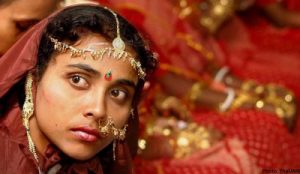Mandatory registration of marriages between Indian citizens and NRIs or OCIs is proposed by the Law Commission, under the leadership of Justice Ritu Raj Awasthi. This aims to address issues of fraud and abandonment. The proposed law includes provisions for divorce, maintenance, and child custody, aiming for fair resolution. Additionally, raising awareness among NRIs and OCIs through community engagement is suggested.
The Law Commission, led by Justice Ritu Raj Awasthi, has proposed that all marriages between Non-Resident Indians (NRIs) and Indian citizens must be officially registered in India. This recommendation aims to tackle issues such as deceitful promises, misrepresentation, and abandonment often seen in such unions. The commission expressed concern over the growing number of fraudulent marriages involving NRIs marrying Indian partners, particularly affecting Indian spouses, particularly women, and emphasized the need for preventive measures.
The report further suggests that it should be mandatory for all marriages between Non-Resident Indians (NRIs) or Overseas Citizens of India (OCIs) and Indian citizens to be registered in India.
The panel has proposed that the new law should encompass provisions concerning divorce, spousal maintenance, child custody and maintenance, as well as the service of legal documents such as summons or warrants to NRIs and OCIs. Additionally, it recommends amending the Passports Act of 1967 to require the declaration of marital status, linking spouses’ passports, and noting the marriage registration number on both spouses’ passports.
Furthermore, the panel suggests granting domestic courts jurisdiction to handle and resolve issues arising from such marriages. According to the panel’s report, disputes within these marriages often require the involvement of local legal systems to ensure fair and equitable resolution.
The panel has also advised the government to raise awareness by actively engaging with the Indian diaspora through community events and regular interactions with Indian communities and organizations. This proactive approach aims to inform and educate NRIs and OCIs about the legal requirements and protections surrounding marriages with Indian citizens, thereby helping to prevent fraudulent practices and safeguard the rights of individuals involved in such unions.

